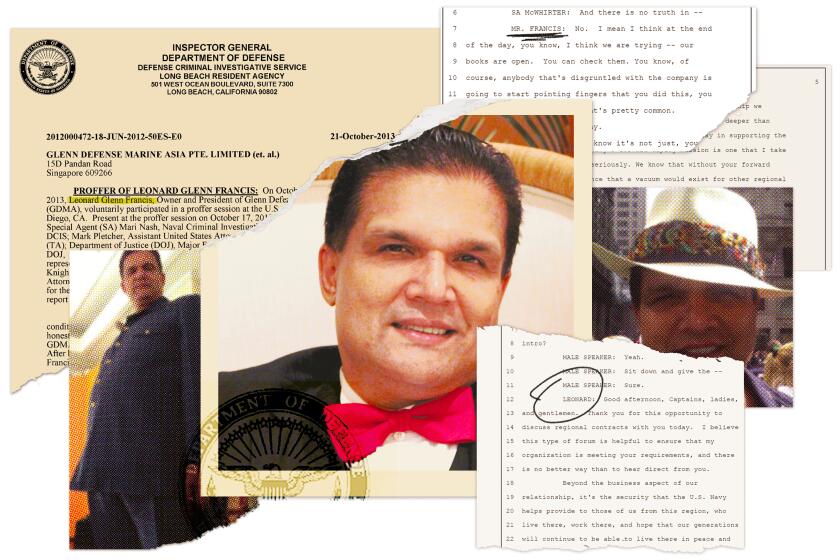East County judge gets blackballed by DA
A veteran El Cajon Superior Court judge is being boycotted on most cases by the District Attorney’s Office, effectively closing down the courtroom of one of the bench’s most experienced judges except for minor misdemeanor cases.
Judge Herbert Exarhos, 73, is the target of the boycott. The ban for all felony cases and serious misdemeanors has been in effect for several weeks.
The reasons for the boycott — a powerful way for prosecutors to send a message about a particular judge — are not exactly known. It started on July 26, just hours after Exarhos issued the last sentence in a case filed against five people for an attack on two homeless men that killed 55-year-old Stephen Hissom in Santee.
Prosecutors were seeking a six-year prison term for the defendant, 19-year-old Sarah Baillie, who had pleaded guilty to a manslaughter charge. Exarhos handed down a three-year term that was criticized outside of court by one of the prosecutors on the case, Deputy District Attorney Elizabeth Rodriguez, who is the daughter of Assistant District Attorney Jessie Rodriguez.
In a television interview outside of court Rodriguez said she “strongly disagreed” with the sentence, saying that Baillie was “very culpable” in the case and had hit and kicked the man on the ground.
Later that day, El Cajon Superior Court Presiding Judge Dan Lamborn was informed that prosecutors would challenge all felony cases and serious misdemeanors that get assigned to the Exarhos courtroom, according to sources in the courthouse and legal community who didn’t want to be identified because they didn’t want to be penalized by the District Attorney’s Office.
Under state law, either party in a case can challenge the judge who has been assigned to hear it by a peremptory challenge. The reason for the challenge does not have to be formally stated. The case is then reassigned to another judge.
Since that day, Exarhos has heard only minor misdemeanor cases.
Exarhos was appointed to the bench in 1987, and is the second-longest tenured judge on the court. He is a fixture in El Cajon, where he served as the presiding judge for 15 years and handled high-profile cases such as that of Santana High School shooter Charles “Andy” Williams.
He declined to comment when contacted this week at the courthouse.
District Attorney Bonnie Dumanis also declined to comment on questions regarding Exarhos. Spokeswoman Tanya Sierra issued a statement detailing the process under which judges can be challenged under the law.
“On occasion, and only after careful consideration, this office will exercise such authority where doing so serves the interest of justice,” the statement concluded.
Superior Court officials also declined to comment this week.
“Judge Lamborn and the court will not comment on these challenges or the impact these challenges have on our internal court process at this time,” spokeswoman Karen Dalton said.
Exarhos has a reputation as an independent-minded jurist who can be brusque, sometimes impatient and sharp-tongued to lawyers in his courtroom. He is routinely challenged by the Public Defender’s Office in El Cajon on misdemeanor drunken driving cases in which the client has a previous DUI conviction.
That is because Exarhos will always sentence someone who pleads guilty or is convicted of drunken driving to a term in local jail — longer than the four days that sentencing guidelines call for.
This is not the first time that Exarhos has earned the ire of the DA’s office. In July 2007, he rejected a plea bargain that allowed a former deputy sheriff, Lowell Bruce, to plead guilty to manslaughter and get a 15-year sentence.
Bruce had shot and killed his wife, Kristin Maxwell-Bruce, during a fight in their home. He was initially charged with murder, which could have brought a life sentence, but agreed to the lesser charge as part of the bargain.
In a highly unusual move, Exarhos said he would not accept the plea, saying it raised questions about whether Bruce was getting special consideration because of his job in law enforcement. The case was assigned to a second judge, who also rejected the deal. After an appeal removed that judge from the case, a third judge eventually sentenced Bruce to the agreed-upon 15 years in prison.
In the past, Dumanis has issued challenges blocking all or most case assignments to five other judges since she assumed office in 2003. Some in the legal community criticized the tactic as a naked power play by prosecutors to exert control over the bench.
In 2009 when Dumanis challenged Judge John Einhorn apparently over some of his rulings, the outcry was so strong in support of the respected judge that a lawyers group named Einhorn the judge of the year. Dumanis lifted that boycott after several months.




